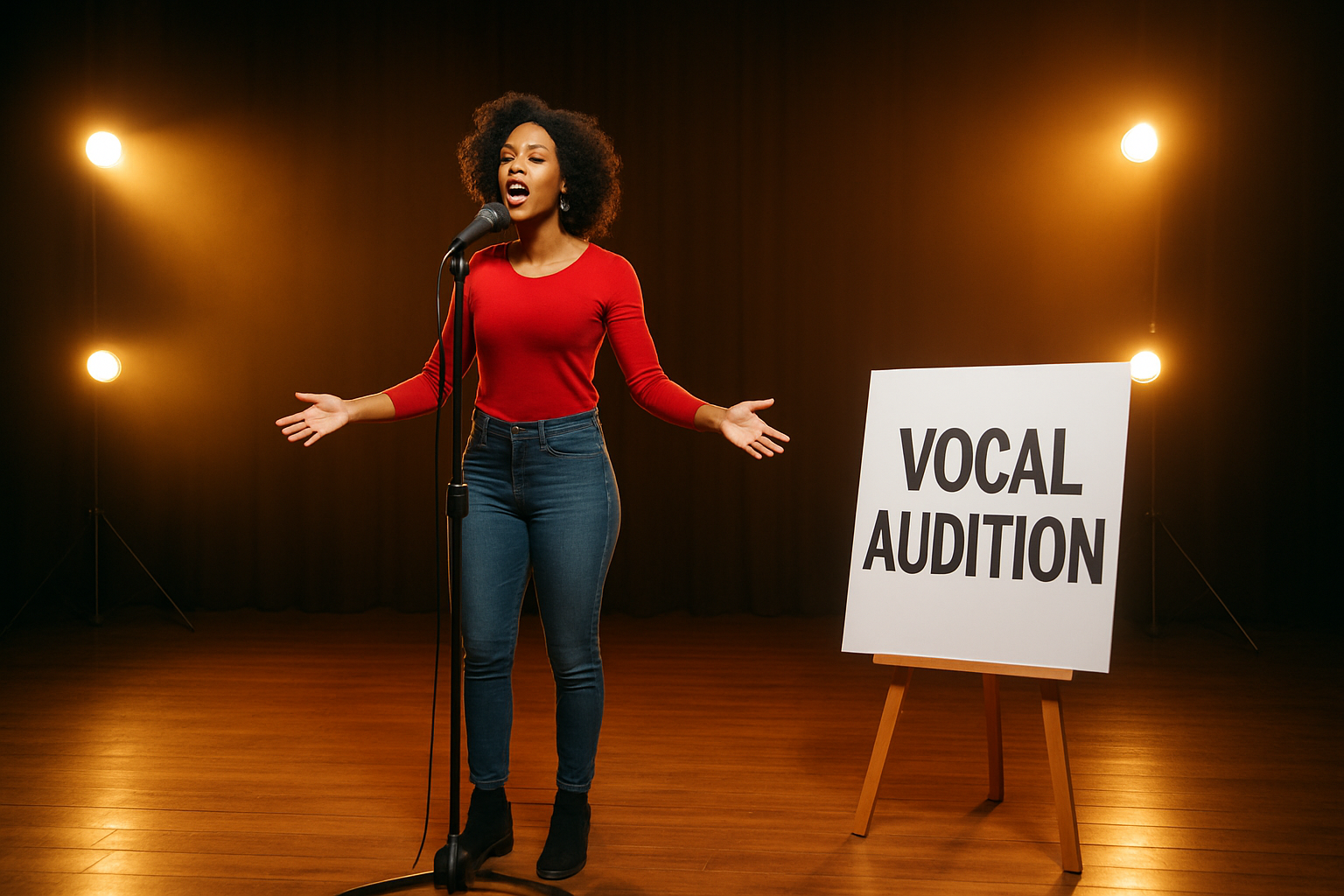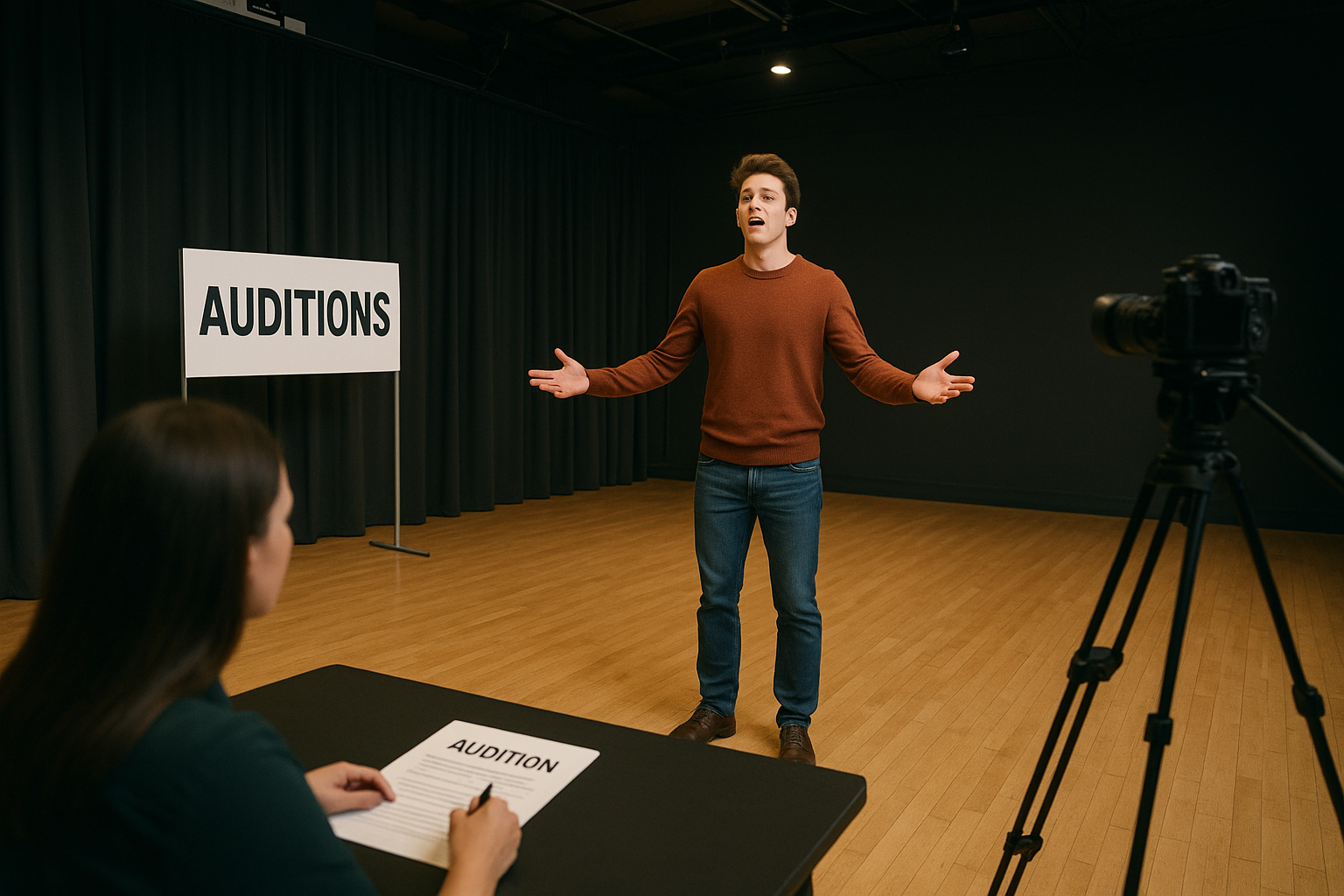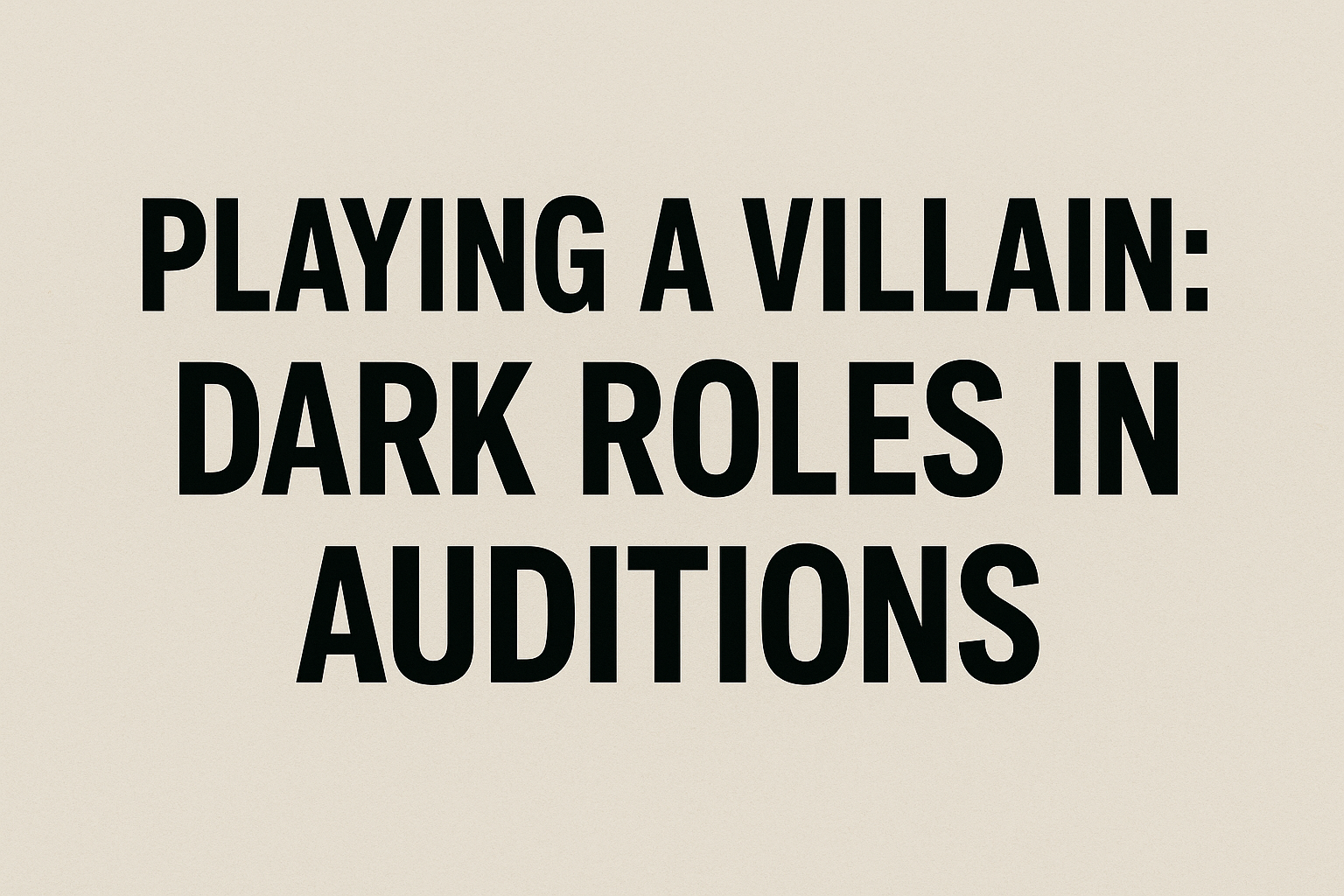
Auditioning as a singer is about far more than just having a great voice. Whether you're trying out for a music competition, a choir, a band, or a reality TV show, your stage presence can make or break your audition. It’s what brings your voice to life and makes the judges or audience connect with you emotionally. A flawless vocal performance without stage presence may sound good, but a strong stage presence paired with a solid voice is what truly moves people.
In this blog, we’ll break down what stage presence is, why it matters, and most importantly, how you can develop and showcase it during your next vocal audition.
What Is Stage Presence?
Stage presence is the ability to command attention and engage the audience when you perform. It’s about how you carry yourself on stage, the energy you exude, your confidence, and how well you connect with your song and those listening to it. It doesn’t mean being overly dramatic or putting on a show that doesn’t feel true to you. Instead, it’s about authenticity, connection, and emotional delivery.
Great stage presence transforms a singer from just a vocalist to a performer.
Why Stage Presence Matters at Vocal Auditions
Judges aren’t just listening to your voice—they’re watching you. They’re asking:
- Do you make me feel something?
- Are you confident and comfortable on stage?
- Do you look like someone the audience would pay to see?
- Can you tell a story through your performance?
In short, they want someone who isn’t just vocally talented, but also engaging, memorable, and emotionally expressive.
1. Connect Emotionally With the Song
Before anything else, understand the story or emotion behind the lyrics. What’s the song about? Who are you singing to? How do you personally relate to it?
Tips:
- Choose audition songs you feel strongly about.
- Think about a real-life experience that mirrors the song’s theme.
- Use your eyes and facial expressions to convey emotion.
Audiences connect with real emotion. Don’t just sing the words—live them.
2. Start Strong with a Confident Entrance
Your stage presence begins before you even sing a note. The way you walk into the room or onto the stage sets the tone. Stand tall, make eye contact with the judges or audience, and look like you belong there.
Avoid:
- Slouching or fidgeting.
- Avoiding eye contact.
- Rushing your setup or looking unsure.
First impressions matter. Confidence—even if it’s faked at first—goes a long way.
3. Use Your Body Intentionally
Don’t let your body go stiff during your performance. Movement brings the performance to life, but it must be intentional and natural.
Tips:
- Use hand gestures to emphasize emotion or lyrics.
- Shift your body slightly with musical transitions.
- Step forward during a climax to draw the audience in.
Avoid excessive, robotic, or distracting movements. You want to enhance the music, not take focus away from it
4. Make Eye Contact and Engage
Eye contact is one of the most powerful tools in your performance toolkit. It helps you connect with the audience or judges on a human level.
Options:
- Sing directly to a judge (especially during key moments).
- If you're nervous, look just above their heads or at the back of the room.
- Avoid staring at the floor or closing your eyes too often.
Pro Tip: Practice in front of a mirror or record yourself to monitor how your eyes and face express emotion.
5. Control Your Facial Expressions
Your face is a direct line to your emotions. A blank or tense face can make even a beautiful song feel lifeless. Practice expressing happiness, sorrow, longing, or strength—whatever your song calls for.
How to improve:
- Mirror practice: Sing your song and observe your expressions.
- Watch performances by great vocalists to study how they use facial expressions.
- Don’t overdo it—keep it authentic and in sync with your lyrics.
6. Dress the Part
Your appearance should support your performance. Choose an outfit that suits your style and the song’s mood, while making you feel confident.
Tips:
- Dress neatly, and avoid overly casual or distracting attire.
- If the song is dramatic or emotional, go for clean, elegant lines.
- Make sure your clothes are comfortable and don’t restrict your movement.
Looking polished shows professionalism and helps you mentally step into “performer mode.”
7. Use the Space Wisely
If you're auditioning on a stage or in a larger room, don’t glue yourself to one spot. Controlled movement helps your performance feel dynamic.
Try:
- Taking a step forward during a key lyric.
- Turning your body slightly for dramatic effect.
- Moving with purpose—don’t pace nervously.
If space is limited (like a room audition), use your upper body more to express energy.
8. Control Nerves with Breathing Techniques
Stage fright is natural. Even seasoned performers get nervous before auditions. What separates them is how they manage it.
Before performing:
- Take deep, slow breaths to calm your body.
- Do a few light vocal warm-ups.
- Visualize a successful audition.
Nerves often cause physical tension, which weakens both your voice and stage presence. Learning to breathe through anxiety can help you appear more confident and grounded”.
9. Rehearse Stage Presence—Not Just Vocals
Many singers focus 100undefined on their voice during practice and forget to rehearse how they’ll perform. Incorporate stage presence into your regular practice sessions.
Do:
- Perform in front of a mirror or friends.
- Film yourself and analyze your performance.
- Practice different facial expressions, gestures, and postures.
Make performance practice a regular part of your vocal training.
10. Stay Present in the Moment
Finally, the key to strong stage presence is being present. Don’t overthink your movements or stress about perfection. Allow yourself to feel the music, embrace the moment, and share something real.
Even if you hit a wrong note, your connection and energy can carry you through. Audiences—and judges—respond to authenticity.
Stage presence isn’t something you're either born with or not. It’s a skill—and like any skill, it can be learned, practiced, and refined. It’s the invisible magic that makes your audition memorable, even if others sing technically better. It’s what turns a singer into a star.
So next time you walk into a vocal audition, remember: you're not just singing a song. You’re telling a story. You’re offering a moment of connection.
Sing with soul.
Acting may be an art, but in the world of professional performance, it begins long before the cameras roll or the stage lights shine. It begins with the audition — the often nerve-wracking, unpredictable process that determines whether an actor even gets the chance to perform. For aspiring actors, understanding the relationship between auditioning and acting is not just important — it's essential. One feeds into the other, and together, they shape an actor’s growth, resilience, and ultimate success.
When it comes to acting, playing a villain is considered a challenge and a golden chance. Villains are multilayered, multi-dimensional, and probably the most remembered characters in a narrative. Be it old Bollywood films such as Gabbar Singh from Sholay or OTT villains such as Guruji from Sacred Games, dark roles determine an actor's fate. But auditioning for a villain is an altogether different. It needs a firm grasp of psychology, body language, and emotional regulation. If you're a newbie or a seasoned actor wanting to master your craft, this blog will walk you through all that you need to know on how to audition for villainous roles.
There is a moment every actor fears: the casting director places a script in your hands you've never laid eyes on before and says, "Take a minute, and when you're ready, we'll begin. Welcome to the cold read — perhaps the most unpredictable, yet vital portion of an actor's career. Whether you're auditioning for theater, television, or voiceover, cold reading is the skill that can break or make your chance at a role. But the good news is this: like every other craft, it can be practiced, honed, and eventually mastered. In this post, we will analyze what cold reading actually is, why it's important, and how you can transform a cold script into a warm, breathing performance.
In the high-stakes, emotionally demanding world of acting, rejection is frequent, uncertainty is constant, and comparison can feel unavoidable. The entertainment industry is as competitive as it gets—and in such an environment, your mindset can make or break your journey. While talent, networking, and luck all play their part, there's one internal tool that can drastically shift your trajectory: a growth mindset.
Lights Camera Audition!
Don't miss out on the latest updates, audition calls, and exclusive tips to elevate your talent. Subscribe to our newsletter and stay inspired on your journey to success!







